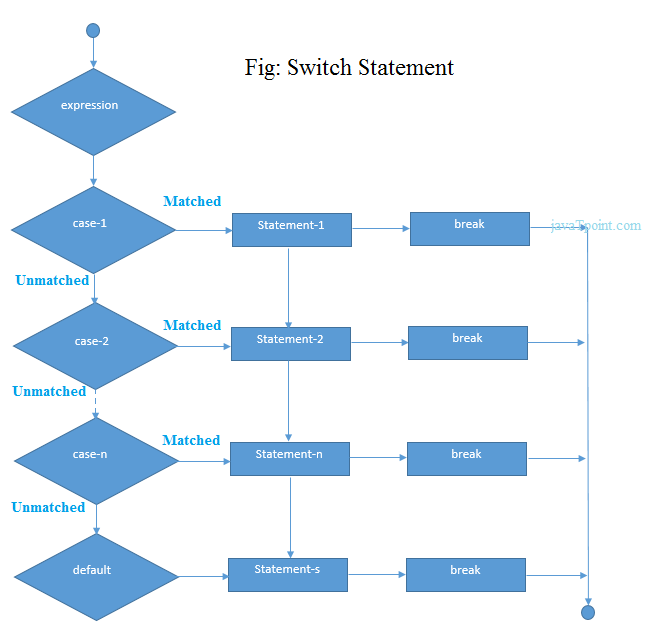C Switch Statement
The switch statement in C language is used to execute the code from multiple conditions. It is like if else-if ladder statement.
The syntax of switch statement in c language is given below:
Rules for switch statement in C language
1) The switch expression must be of integer or character type.
2) The case value must be integer or character constant.
3) The case value can be used only inside the switch statement.
4) The break statement in switch case is not must. It is optional. If there is no break statement found in switch case, all the cases will be executed after matching the case value. It is known as fall through state of C switch statement.
Let's try to understand it by the examples. We are assuming there are following variables.
| Valid Switch | Invalid Switch | Valid Case | Invalid Case |
|---|---|---|---|
| switch(x) | switch(f) | case 3; | case 2.5; |
| switch(x>y) | switch(x+2.5) | case 'a'; | case x; |
| switch(a+b-2) | case 1+2; | case x+2; | |
| switch(func(x,y)) | case 'x'>'y'; | case 1,2,3; |
Flowchart of switch statement in C

Let's see a simple example of c language switch statement.
Output
enter a number:4number is not equal to 10, 50 or 100
enter a number:50number is equal to 50
C Switch statement is fall-through
In C language, switch statement is fall through, it means if you don't use break statement in switch case, all the case after matching case will be executed.
Let's try to understand the fall through state of switch statement by the example given below.
Output
enter a number:10number is equals to 10number is equals to 50number is equals to 100number is not equal to 10, 50 or 100
enter a number:50number is equal to 50number is equals to 100number is not equal to 10, 50 or 100
No comments:
Post a Comment